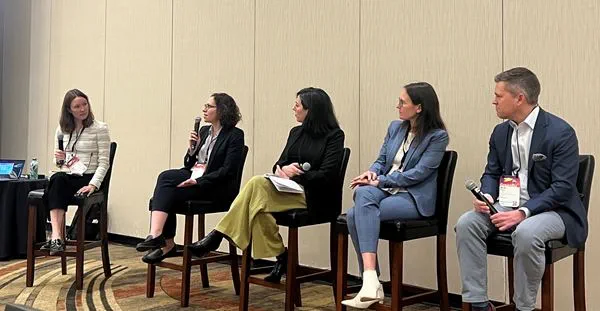Today, the SEC voted to adopt the final version of “The Enhancement and Standardization of Climate-Related Disclosures for Investors” rule, two years after the release of the initial draft and following over 24,000 comments.
The SEC scaled back the final rule, with Scope 3 out and more flexibility in.
Even so, it is a major mandate for companies publicly traded and those anticipating public offering in the U.S., both domestic and foreign. The requirements for companies to now furnish material climate-related disclosures to a U.S. regulator as early as fiscal year 2025 represents a significant step in corporate transparency. Now, investors will have access to comparable, credible and consistent information on climate-related risk, governance, risk management, greenhouse gas (GHG) emissions and targets, and climate-related financial impacts.
The SEC still expects potential legal challenges to the final rule and has reshaped it in defense of those challenges—most notably by sacrificing several emissions disclosure requirements, including Scope 3. The final SEC rule diverges from the EU Corporate Sustainability Reporting Directive (CSRD) and California Climate Accountability Package (SB253 and SB261) requirements that affect many U.S. companies.
Key requirements include:
- Scope 1 and 2 greenhouse gas emissions if material, only for large accelerated filers (starting FY 2026) and accelerated filers (starting FY 2028). Previously, the rule required all registrants to report Scope 1 and 2. Scope 3 GHG emissions are no longer included in the final reporting mandate.
- Limited assurance on GHG emissions will be required three years after reporting starts and reasonable assurance will be phased in seven years after reporting starts for large accelerated filers only.
- Any GHG Protocol organizational boundaries are allowed, including operational control, as long as any material differences from consolidated financial statements are described.
- Disclosures on climate-related risks, governance, risk management and goals and targets in Regulation S-K (starting FY 2025). These have changed from the original rule to become less prescriptive and some topics have been excluded, such as board-level climate expertise.
- Disclosure of climate-related financial information under Regulation S-X (starting FY 2025), with significant changes from the original rule.
The rule can be separated into financial and non-financial climate-related disclosure topics. These disclosures would also be subject to management’s internal control over financial reporting and external audit.
Financial disclosures
The requirements for the disclosure of climate-related financial statement metrics are still stringent and subject to applicable 1% and de minimis disclosure thresholds, per Regulation S-K. However, they are no longer considered climate-related financial “impact” metrics and are to be reported on a disaggregated basis as a note to the annual financial statements. Disclosures include:
- The capitalized costs, expenditures expensed, charges and losses incurred resulting from severe weather events and other natural conditions.
- The disclosure of capitalized costs, expenditures expensed and losses related to “transition activities” as identified in the proposed rule are specified in the final rule. The scope of these activities is limited to carbon offsets and renewable energy credits or certificates (RECs) if used as a material component of a registrant’s plans to achieve its disclosed climate-related targets or goals.
These disclosures should also be coupled with estimates and qualitative descriptions of the above, when necessary, to provide sufficient context.
Non-financial disclosures
Outside of the financial statements, quantitative and qualitative disclosures are required in part of the registration statement or annual report as a separately captioned “Climate-Related Disclosure” section, per Regulation S-K. Compared to the proposed rule, climate-related risks, governance and oversight, risk management and targets and goals are still included, but with less prescriptive requirements and would address:
- Scope 1 and 2 GHG emissions (if material), only for large accelerated and accelerated filers, and an exemption to small reporting companies or emerging growth companies
- Climate-related risks that had or would have material impacts on the business strategy and financial condition, including physical and transition risks in the short and long term
- Climate risk management processes and if/how those are integrated in standard risk management systems
- Climate targets and goals including material impacts or financial estimates resulting from actions to make progress on the goals
- Board and management oversight of climate-related risks
- Disclosures on transition plans, scenario analysis or internal carbon prices if used by the registrant, including a safe harbor from private liability on these disclosures
Timeline
Compliance dates for the rule will be phased in for all registrants, with the compliance date dependent on the registrant’s filer status and the reporting topic.
- Large accelerated filers will be required to report first, in 2026, on their fiscal year 2025 activities, followed by accelerated filers. The timeline for GHG emissions is one year after the S-K and S-X requirements.
- Reporting of GHG emissions to the second quarter in the form 10-Q will be permitted if needed.
How to prepare
Since the draft rule was released in March 2022, we have witnessed an acceleration in and consolidation of corporate climate disclosure standards at a global level with the EU CSRD, ISSB and California Climate Accountability Package.
For large filers, California rules are more stringent and for U.S. corporations subject to CSRD, the SEC rule is only one piece of the larger puzzle.
How will this impact your organization and what steps can you take? Arcadis Sustainability and ESG experts are here to help you break down the rules and understand how to meet the requirements.








